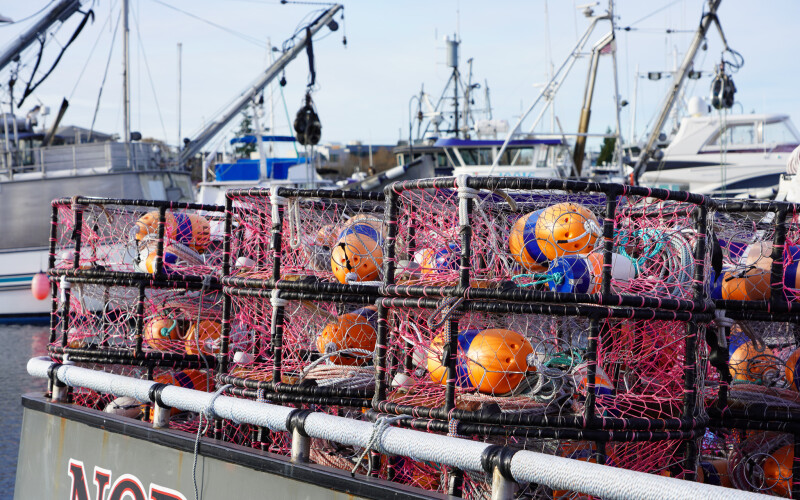Clackamas, Oregon, U.S.A.-based Pacific Seafood is fighting back against a lawsuit alleging it has engaged in anti-competitive behavior in the U.S. West Coast Dungeness crab market.
Auburn, California, U.S.A.-based Dungeness fisherman Brand Little filed a class-action lawsuit in March 2023 in the U.S. District Court for the Northern District of California against Pacific, which is one of the largest players in the fishery, accusing it of price-fixing.
“For at least the last four years, and likely substantially longer, Pacific Seafood has illegally fixed the price paid to crabbers (the ex-vessel price) for Dungeness crab landed in the Pacific Northwest area, dramatically reducing the amounts received by crabbers for their labors and preventing consumers from receiving reasonably priced fresh Dungeness crab during periods when demand for the product is highest, leaving most consumers to buy frozen Dungeness crab from the previous year supplied by Pacific Seafood,” the suit said. “Pacific Seafood has achieved this control through a multi-pronged illegal strategy of monopsonization of the Pacific Northwest area’s Dungeness crab wholesale-input market, coercive combinations with other Dungeness crab wholesale buyers, and coercive combinations with certain Dungeness crabbers.”
The suit claims Pacific Seafood has used its dominant position as the primary buyer of multiple seafood types in the region and as a major fishing power in its own right to force compliance with its pricing schemes, along with the use of threats, intimidation, and retaliation for non-compliance.
“For example, this season, Pacific Seafood dumped whole fresh cooked crabs, at prices between USD 3.99 and USD 4.50 – which is below cost – in the San Francisco Bay Area and elsewhere to punish buyers who offered ex-vessel prices to crabbers at a time that Pacific Seafood was refusing to state a price, and sold live crab in the Chinese market for USD 4.50, free on board – which is again below cost – to punish buyers serving that region who were similarly noncompliant,” the lawsuit said. “Pacific Seafood’s position as virtually the only purchaser of Dungeness crabs that other buyers cannot sell to retailers, restaurants, or similar customers allows Pacific Seafood to unilaterally determine the price paid to those buyers for such crabs. And Pacific Seafood through explicit arrangements with other buyers and less explicit arrangements has set that price at approximately USD 0.15 to USD 0.25 per pound above the ex-vessel price it dictates for the market. Indeed, many buyers make no pretense of even trying to sell much (and, in some cases, any) the Dungeness crab that they purchase ex-vessel to anyone other than Pacific Seafood according to such an arrangement, effectively becoming just a middleman between Pacific Seafood and the crabbers.”
In May 2023, Pacific filed a motion to dismiss the suit, arguing Little had failed to prove anticompetitive or exclusionary conduct or to identify any buyers other than himself who were harmed by the company’s actions, despite there being approximately 1,400 Dungeness crab fishers along the U.S. West Coast, including 600 who deliver crab to Pacific.
“The legal complaint on file with the court is a long, repetitive, sloppy document filled with antitrust ‘buzzwords’ but no substance,” Pacific Seafood Chief Legal Officer Dan Occhipinti said in a statement issued on 20 July. “The content demonstrates a profound lack of familiarity with the commercial Dungeness crab industry, and much of it does not make logical sense. The allegations about Pacific are outright lies.”
Pacific said Little has never done any business with the company, meaning he lacks the standing to sue, and said Pacific controls just 25 percent of the Dungeness market, not more than 50 percent as claimed by Little.
“We are confident that upon thorough investigation of the facts here, one will find that Pacific Seafood is a great company that always has, and always will, uplift and protect the West Coast commercial seafood industry for our fleet, our employees, and our customers,” Occhipinti said.
Little and his attorney, Stuart Gross, responded to Occhipinti on the Oregon Public Broadcasting radio show “Think Out Loud” and an op-ed published by Civil Eats also presented a rebuttal of Pacific Seafood’s arguments.
The initial case management hearing will be heard by U.S. Magistrate Judge Alex G. Tse on 1 September 2023.
This article was originally published in Seafood Source and is republished here with permission.







